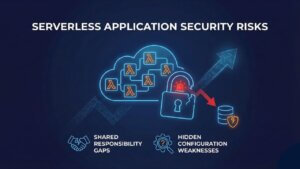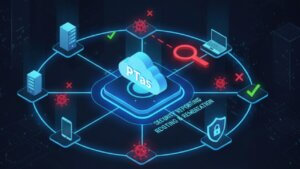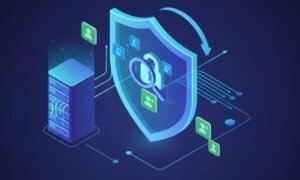In an era defined by data, businesses are increasingly relying on cloud solutions to manage, analyze, and secure their information. The right cloud strategies can empower organizations to dominate data management, driving efficiency, innovation, and competitive advantage. Here’s how your business can harness the potential of unstoppable cloud solutions to revolutionize its data management practices.
Table of Contents
What is Cloud Data Management?
Cloud data management refers to the processes, tools, and practices used to handle, store, organize, and secure data within cloud-based environments. It ensures that data is accessible, protected, and optimized for performance while leveraging the scalability and flexibility of cloud computing.
The Rise of Cloud Data Management
Cloud data management is no longer a luxury—it’s a necessity. As businesses generate massive amounts of data daily, traditional on-premises solutions struggle to keep up. Cloud platforms offer scalability, flexibility, and cost-effectiveness, making them indispensable for modern data management.
Why cloud solutions dominate:
Scalability: Easily adapt to fluctuating data storage and processing needs.
Cost Efficiency: Pay-as-you-go models reduce upfront infrastructure investments.
Global Accessibility: Access your data anytime, anywhere.
Enhanced Security: Advanced security features protect data from evolving threats.
Key Features of Unstoppable Cloud Solutions
To truly dominate data management, businesses must leverage cloud solutions with these key features:
1. Real-Time Data Processing
Modern cloud platforms like AWS, Azure, and Google Cloud enable real-time data processing, essential for businesses relying on instant analytics and decision-making.
2. Seamless Integration
The ability to integrate with other tools and platforms is critical. Cloud solutions should support APIs and pre-built connectors for CRM, ERP, and other business systems.
3. Advanced Analytics and AI
Cloud platforms now come with built-in AI and machine learning tools. These capabilities allow businesses to extract deeper insights, forecast trends, and automate repetitive tasks.
4. Data Backup and Disaster Recovery
Cloud solutions ensure robust data protection through automated backups and disaster recovery options. This resilience minimizes downtime and data loss.
Strategies to Dominate Data Management with Cloud Solutions
1. Adopt a Hybrid Cloud Approach
A hybrid cloud model—combining on-premises systems with public and private clouds—offers the best of both worlds. Businesses can maintain control over sensitive data while leveraging the scalability of the cloud.
2. Prioritize Security and Compliance
Data security is a top concern in cloud adoption. Implement encryption, identity and access management (IAM), and multi-factor authentication (MFA) to safeguard your data. Additionally, ensure compliance with regulations like GDPR, HIPAA, and CCPA.
3. Optimize Costs with FinOps
Cloud spending can spiral out of control without proper oversight. Implement financial operations (FinOps) to track usage, eliminate waste, and optimize spending across cloud platforms.
4. Leverage Automation
Automate data workflows, backups, and routine maintenance tasks to save time and reduce errors. Use tools like AWS Lambda or Azure Logic Apps for efficient automation.
5. Focus on Data Governance
Establish clear policies for data classification, access, and usage. A strong governance framework ensures that your data remains organized, secure, and accessible.
Top Cloud Platforms Leading the Way
Amazon Web Services (AWS)
AWS offers an extensive suite of tools for data storage, processing, and analytics. With services like Amazon S3, Redshift, and Athena, AWS provides unmatched scalability and performance.
Microsoft Azure
Azure excels in hybrid cloud solutions, making it ideal for businesses with complex data management needs. Its AI and machine learning services enhance analytics capabilities.
Google Cloud Platform (GCP)
Known for its data analytics expertise, GCP’s BigQuery and AI tools make it a top choice for businesses focusing on big data and machine learning.
Why Businesses Trust SecureMyOrg for Comprehensive Network Security
At SecureMyOrg, we uncover and fix all possible security vulnerabilities of mobile and web, while providing solutions to mitigate risks. We are trusted by renowned companies like Yahoo, Gojek and Rippling, and with 100% client satisfaction, you’re in safe hands!







Some of the things people reach out to us for –
- Building their cybersecurity program from scratch – setting up cloud security using cost-effective tools, SIEM for alert monitoring, building policies for the company
- Vulnerability Assessment and Penetration Testing ( VAPT ) – We have certified professionals, with certifications like OSCP, CREST – CPSA & CRT, CKA and CKS
- DevSecOps consulting
- Red Teaming activity
- Regular security audits, before product release
- Full time security engineers.
Conclusion
Unstoppable cloud solutions are the key to mastering data management in today’s fast-paced digital world. By adopting advanced cloud technologies, prioritizing security, and leveraging automation, businesses can unlock unparalleled potential and stay ahead of the competition.
The future of data management is here. Make the leap to cloud-powered dominance and transform the way you manage your most valuable asset: data.
Relevant Posts

Top Cybersecurity Threats Facing Businesses In 2026
Businesses entering 2026 face a security landscape that is more complex, more interconnected, and far less forgiving than in previous years. Cybersecurity threats no longer

Top 5 Security Weaknesses Cloud-Native Apps Commonly Ignore
Cloud-native applications promise speed, flexibility, and scalability. Teams ship features faster, infrastructure adapts automatically, and operational overhead drops. Yet many organizations discover later that security

Why Weak Serverless Application Security Puts Your Business at Risk
Weak security in serverless environments often goes unnoticed until it leads to real damage. Misconfigured triggers, broad permissions, and poor visibility can expose sensitive data and disrupt business operations. Understanding where the risks appear is the first step toward building safer, more reliable serverless applications.

What Is Penetration Testing as a Service?
Penetration testing as a service (PTaaS) lets experts simulate real attacks to uncover vulnerabilities before hackers do. This guide explains the process, benefits, and costs, helping businesses strengthen defenses with predictable, ongoing security checks.

How To Inspect Encrypted Traffic Without Breaking Privacy
Network administrators face a challenge: securing systems while respecting privacy. This guide explains how to inspect encrypted traffic without breaking privacy using metadata, anomaly detection, and machine learning ensuring visibility, compliance, and trust.

How to Audit Infrastructure as Code (IaC) for Security Vulnerabilities
Discover how to audit Infrastructure as Code (IaC) for security vulnerabilities with this practical guide. Learn to scan IaC files using tools like Checkov, fix issues like exposed resources, and integrate audits into CI/CD pipelines. Protect your cloud systems from misconfigurations and ensure compliance with clear, actionable steps.
